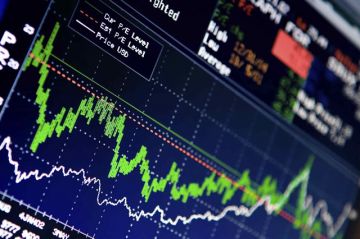When I speak with bankers, they all say they want financial institutions to be recognized as respected members of society. Is it enough for the sector to be able to better address risks management, ESG sustainability, business ethics, and long-termism?
Can the sector reinvent itself through its own initiative, along with the growing pressure of soft law, and the threat of regulation hanging over its head?
Back in March 2009, as global markets were still reeling from the devastation of the financial crisis that hit out of the blue, I was part of a panel at the Organisation for Economic Cooperation and Development (OECD) on the process to update its Guidelines for Multinational Enterprises.
Our task was to specifically advise the OECD on issues related to the financial sector. We spoke about the opportunity for the updated Guidelines to emphasize risk management, environmental, social and governance (ESG) sustainability, business ethics, and long-termism.
Herman Mulder, a former executive at the Dutch bank ABN-Amro, issued a passionate plea: “Don’t waste a good crisis”.
Since then, a lot of interesting things have happened in and around the financial sector. Has the sum total of these developments helped money grow a conscience? The answer is encouraging.
Some interesting facts about the financial sector:
-
Consumer protection became a big issue, picked up not only by regulators and central banks, but also financial literacy advocates, consumer interest groups, and banks (this topic also made it in the updated OECD Guidelines);
-
G20 members gathered to brainstorm on topics like finance for small and medium size enterprises to encourage innovative ways to stimulate jobs and growth, as well as financial inclusion to enable access to finance by the poor people through the safe and sound spread of new approaches and technologies;
-
Some banks took initiative - StandardChartered Bank carried out a social and economic impact study for Ghana – a first in a series of studies that looks at the bank’s contribution to society. Others renamed their sustainability reports to reports on “responsible banking” and emphasized their business ethics;
-
Many of these banks participated in the UN consultations led by Special Representative John Ruggie to understand how they should address the finance and human rights challenge;
-
Meanwhile, we have seen a rapid emergence of impact investment, which seeks a financial as well as social or environmental return on investment, and the comprehensive standards and measurement frameworks that support the movement, which is quickly spreading to foundations, socially responsible investors, microfinance institutions, and even traditional players in the finance sector, such as investment houses and rating agencies.
Then this May and June, a series of initiatives converged. First, on May 12, the International Finance Corporation (IFC) completed the update of its Sustainability Framework, including the Performance Standards, which are the basis of the Equator Principles in which many of the world’s largest banks participate. The Framework was unanimously approved by the IFC board, comprised of 182 member countries. The new Performance Standards tackle cross-cutting issues like climate change, business and human rights, supply chain, “free, prior, and informed consent”, and ecosystem services.
Then on May 25, the OECD delivered its updated Guidelines for Multinational Enterprises with fully fleshed out provisions on human rights and supply chain issues, in line with the UN Protect, Respect, Remedy framework and Guiding Principles. While the OECD ran out of time and did not address the financial sector specifically, it is broadly understood that the Guidelines will apply to the sector, including the human rights provisions.
Last by not least, on 16 June the UN Human Rights Council unanimously endorsed the Guiding Principles on Business and Human Rights put forward by John Ruggie.
All three of these instruments fall in the category of “soft-law”. But they all have a global influence and are the new global standards against which corporate performance will be judged over the coming years. The financial sector will have to respond to these developments.
When I speak with bankers, they all say they want financial institutions to be recognized as respected members of society. Is it enough for the sector to be able to better address risks management, ESG sustainability, business ethics, and long-termism? Can the sector reinvent itself through its own initiative, along with the growing pressure of soft law, and the threat of regulation hanging over its head?
This week I’ll be joining a meeting organized by the Institute for Human Rights and Business and the School of Law at Wits University in South Africa to discuss how these and other issues may play out for the African region and beyond.
A recent article by staff members at Clifford Chance summed up the challenges ahead this way: Banks and human rights: Does money mind if we say it’s evil? I hope it does.





























How should businesses respond to an age of conflict and uncertainty?
As 2024 began, European Commission President Ursula von der Leyen aptly summed up our deeply worrying collective moment. As she put it, speaking at the annual World Economic Forum in Switzerland, we are moving through “an era of conflict and...
26 March 2024 | Commentary
Commentary by Scott Jerbi, Senior Advisor, Policy & Outreach, IHRB